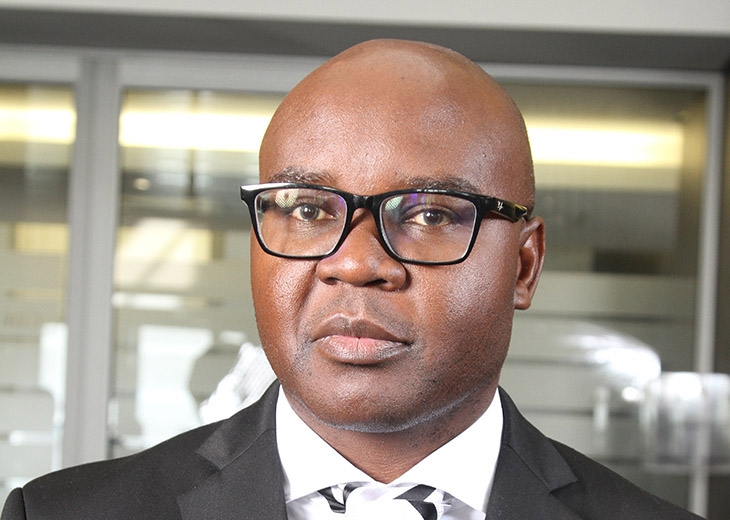DBN is preparing measures to give relief to borrowers in the wake of the Covid-19 pandemic, CEO Martin Inkumbi has announced.
Talking about the need for relief, he said, the Bank recognises that borrowers are experiencing difficulty, particularly in the tourism sector and among SMEs. In light of this the Bank will begin providing relief to preserve the development impact of its loans as well as economic activities they were aimed to support.
Among the measures, Inkumbi announced a temporary moratorium on repayment of capital and interest, equity conversion and resourcing and implementation of the N$500 million relief facility announced by the Minister of Finance, Hon. Iipumbu Shiimi.
Temporary moratorium on loan repayment (loan payment holidays)
The thrust of the moratorium on debt and interest repayment, Inkumbi explained, would be targeted at SMEs and tourism and hospitality enterprises (both SMEs and corporates) that already have loans from the Bank, and are affected by the Covid-19 lockdown. Tourism and hospitality includes accommodation establishments, restaurants, car hire and other enterprises in the sector. Other corporate borrowers not in the tourism and hospitality industry will be considered on a case-by-case basis and should individually approach the Bank to discuss relief needed. The repayment holiday excludes contract based finance beneficiaries, who will have to approach the bank for relief to be considered on a case-by-case basis.
Although the Bank monitors repayments, the sudden and extraordinary nature of the situation means that the Bank will not immediately be able to identify all individual clients experiencing difficulties from ongoing monitoring of repayment records. He called on borrowers to approach the Bank if they are experiencing sudden contractions of cash flow due to Covid-19.
The moratorium will not absolve borrowers of their debts, but will be a three month ‘debt holiday’, during which repayment will be resumed at a later date and interest will be capitalized for the period of the holiday. The duration of the debt holiday will be three months, subject to the current duration of the lockdown, and a reasonable allowance for recovery and resumption of economic activity. This will however be reviewed on the basis of the ongoing economic impact of measures to contain Covid-19.
While the payment holidays are for 3 months, the Bank will continue monitoring the situation and will review its measures as developments unfold.
Asked why the Bank won’t cancel loan repayments, Inkumbi cited two reasons. Firstly, he said the Bank has to match its assets and liabilities. The Bank is itself expected to honor repayments on amounts it has borrowed and hence it cannot completely cancel borrowers’ loan repayments. Secondly, he said the Bank is duty bound to recover its capital and the interest in order to make additional loans. He noted that DBN operates like a revolving fund, lending money to enterprises to grow and to develop infrastructure. Collected repayments from these borrowers are used for on lending the money again to finance a new wave of borrowers. The collection of a large proportion of the Bank’s current loan book is critical for the sustainability and very existence of DBN.
He went on to say that beneficiaries of the moratorium must make management accounts available to the Bank and explain the direct and indirect impact that the COVID-19 pandemic has had on their businesses. The regular provision of financial records to the Bank, Inkumbi said, is a normal requirement in the Bank’s contracts with borrowers, so he noted that he does not expect difficulties, and added that as 31 March is year-end for many companies financial statements should be in preparation for many of the Bank’s borrowers. For those with different year-ends, he urged them to have their accountants or bookkeepers draw up preliminary statements.
Although the Bank is accepting and assessing applications for finance through remote working practices such as email, the Bank will take into account the impact of the lockdown on new borrowers and appropriate repayment grace periods will be considered.
Inkumbi urged enterprises to reconsider their business concepts and operational models and make adjustments where possible to minimize the impact of the lockdown on the business expenses in particular, and prepare to continue with business in the near future as the lockdown is hoped to end at some point.
Equity conversion
On the topic of equity conversions, Inkumbi said, this may be offered to large corporate borrowers, that have larger loans and are experiencing cash flow challenges that can only be addressed through a restructuring of the business’ capital structure, usually by increasing the equity component and reducing the debt portion. This has the implication of DBN becoming a shareholder in the said enterprise. The intent will not be for DBN to hold the equity in the business for the long term, but to use the equity to reduce the debt burden, and enable the said enterprise to continue as a going concern and grow. DBN will at some point exit, by selling its shares back to the owners, to a new group of investors or even through a listing on the NSX. The debt conversion option is only viable for companies with a strong business case and potential for growth and will be applied with diligence.
SME Working capital support through the N$500 million Ministry of Finance Covid-19 relief measure
On the topic of the N$500 million SME stimulus announced by Hon. Iipumbu Shiimi, Martin Inkumbi said the Bank is in close consultation with the Minister to raise the required capital and how to implement this relief measure. He said that an announcement on implementation will be made by the Bank in the very near future.
Although Covid-19 is disrupting the economy, it is vital to focus on recovery and resumption of economic activity. This, Inkumbi said, will rest on all pillars of the economy but particularly Namibian enterprise. We are in this together, and by working together, we will emerge stronger, he concluded.




